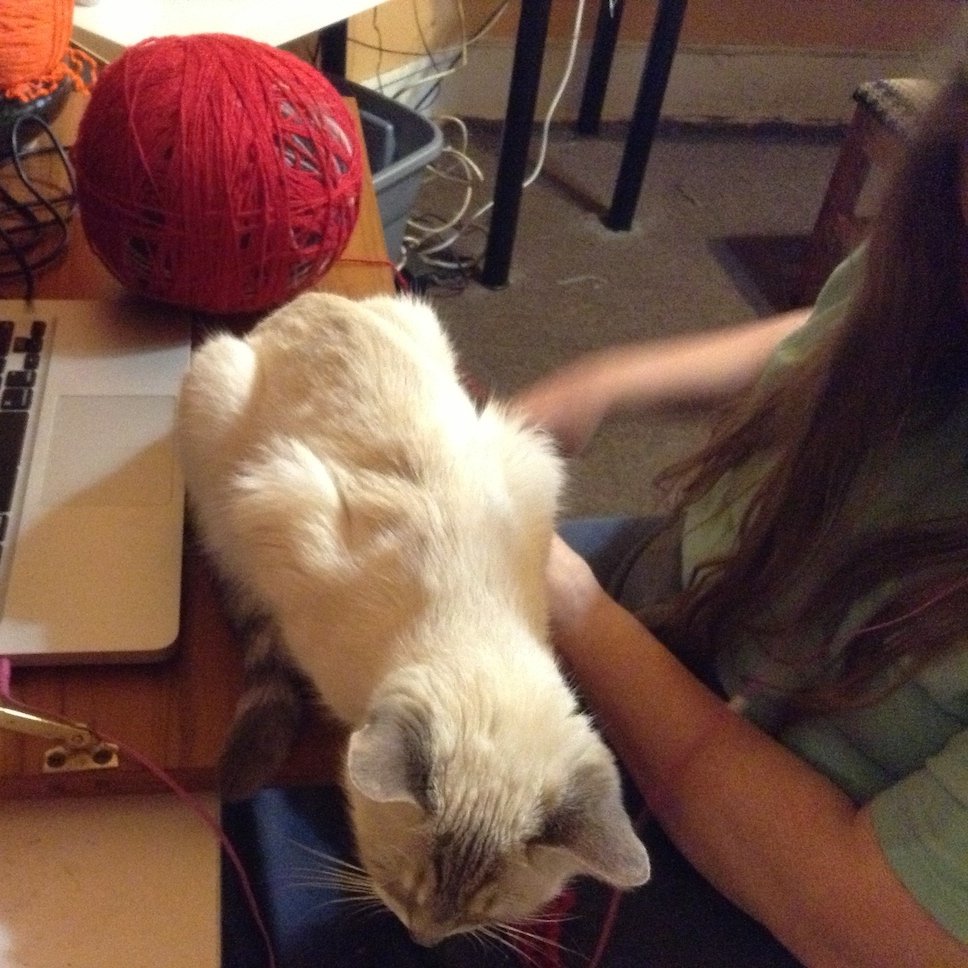**SPOILERS**
I'm officially disgruntled. You might have seen my recent post
Review As You Read, in which I blundered through most of
Kafka on the Shore and wrote a vague summary (didn't want to give things away) along with my reactions (I was equally pleased and bored).
Now that the story is over, I'm neither pleased nor bored. I'm frustrated.
Let me be clear: I enjoy mythology, I enjoy metaphysical meanderings, I love riddles--especially existentialist ones... Pondering my existence and treading on the verge of non-existence are themes I also investigate (to a limited degree) in my work. So why am I so dissatisfied with
Kafka on the Shore?
Basically, I find it
too open to interpretation. Don't get me wrong: I do enjoy open endings, but everything has to have a limit. Take the ending of the film
Inception, for example. I know
no movie is without sin, but I particularly enjoyed the free-interpretation ending in this flick. In my personal version, the happy ending is no more than a dream within a dream--a lie the main character tells himself. Other viewers argue that the ending is reality--check Cobb's wedding ring, etc.
In
Inception we have an open ending, an unanswered riddle, and to me that's fine. Let's look at another example:
Life of Pi. There is a heavy religious element (which some complain is shoehorned in), but also a gut-wrenching tale of survival. Which version of the story should we believe? Animal? Human? What really happened to Pi? Is the tiger a representation of his inner self, or was he truly on a boat with this massive feline? All unanswered questions, but not remotely as frustrating as
Kafka on the Shore because, one way or another, readers can choose their own answers.
Having said that, let's return to
Kafka on the Shore. Just off the top of my head:
What the hell happened to Nakata as a child? What's the meaning/use of the flute made out of cat souls? Is Johnnie Walker really Kafka's father? If so, does that make Kafka's father a cat murderer and possibly a meddler in the dark arts? Did Nakata ever manage to recover the part of himself that he lost in that freak accident we still know almost nothing about? Why'd he suddenly die? Is Colonel Sanders the same "entity" as Johnnie Walker? Why can't we get to see the flute? What the hell is that white creature that tries to go into the entrance stone? What the hell is that town hidden in the forest? Is it a sort of limbo? Other dimension? Afterlife? Too...many...frustrating...questions!
As you might have noticed, these questions don't really refer to the big picture. They're book-specific, plot-specific, however you want to call it. These are the worst, in my opinion, because they can easily make a reader feel frustrated and lose interest in the story. Their abundance makes me wonder if I might have blacked out during a few pages...or chapters. What's worse is that, as the action progresses, the questions just keep on piling up--
and never get resolved! When absolutely every plot point raises a question that never gets answered, my BS meter starts to go off.
All these loose ends and unfulfilled promises build up so that by the time I reach the end of the novel I'm far from awed. I'm frustrated and not in the mood to ponder any longer--not when the questions I'm left with don't have any life-enlightening meaning to me. Not when the promise of dark fantasy (initiated by the character Johnnie Walker and his infamous soul flute) fizzles out into a mish-mash of pseudo-philosophical representations.
The answers are always just out of reach: a page away, just one more page, just a little more, then we'll finally understand. Not this page? Turn another one. Oh... Not in this chapter? Then maybe in the next one. Yeah, the next one for sure. Or not...
Let me illustrate my frustration with a sample from the book.
The last chapter contained a true kick in the gut for me. Kafka has just returned from "beyond" (whatever, whenever, and wherever the heck that is). Two WWII soldiers apparently frozen in time guard the entrance and lead Kafka back out to the cabin in the woods where he was staying. Soon, a man called Sada comes to pick him up and take him back to the library, his usual residence. This is part of the conversation that ensues:
"Did you run across the soldiers?" Sada asks casually as if he'd asked me what time it was.
"You mean those two soldiers?"
"Right," Sada responds, glancing at me. "You went in that far, eh?"
"Yeah, I did," I reply.
His hands lightly gripping the wheel as he manoeuvres it, he doesn't respond, and his expression doesn't tell me anything.
"Sada?" I ask.
"Hm?" he says.
"When you met those soldiers ten years ago, what did you do?"
"What did I do when I met those soldiers?" he repeats.
I nod and wait for his answer.
He glances in the rear-view mirror, then looks ahead again, "I've never talked about that to anyone," he says. "Not even to my brother. Brother, sister--whatever you want to call him. Brother works for me. He doesn't know anything about those soldiers."
I nod, saying nothing.
"And I doubt I'll ever tell anybody about it. Even you. And I don't think you'll ever talk about it to anyone, either. Even to me. You know what I'm trying to say?"
"I think so," I tell him.
"What is it?"
"It's not something you can get across in words. The real response is something words can't express."
"There you go," Sada replies. "Exactly. If you can't get it across in words, then it's better not to try."
Page 496 of my edition (last chapter).
My reaction:
 |
| Are you serious? Did that just happen? |
It's scenes like these which make me wonder if the author isn't having a hoot at our expense. I've seen them in book forums: loyal readers discussing and debating and picking apart every meaningless detail in an effort to understand something--
anything. To me, that's grasping at straws. I'm the kind of person that wants answers. More or less straightforward answers. Maybe I'm too pragmatic. Maybe I'm too literal, though I do understand things aren't black or white but actually an ample gradient of tones of gray. People can have different answers for the same question, and they can all coexist.
Being open to interpretation isn't really the problem--I already mentioned this with examples such as
Inception or
Life of Pi. The problem is being
too open to interpretation. So open, in fact, that the story begins to resemble more a pantomime of a riddle than an actual riddle.
Unfortunately, this is the sickening feeling I get after reading
Kafka on the Shore. As I mentioned in my Review As You Read post, I generally enjoyed Nakata's chapters more than Kafka's because they were more straightforward and the action seemed to be leading somewhere. However, I felt cheated. Chapter 16 was for me a turning point in the story. Johnnie Walker needed to murder cats and devour their beating hearts in order to create a flute with the cat souls. The question is WHY? Why, God in Heaven, WHY?
Walker cruelly murders three cats as Nakata watches, helpless. Johnnie Walker wants Nakata to kill him, and finally the old man snaps and does just that. It was a shocker of a chapter, and it promised many things--things which never really came to term. Sure, Walker does make a final appearance in which the boy named Crow pecks out his eyes while he cackles with laughter. He even taunts us by mentioning that he now has the soul flute, but it's in his bag and he doesn't feel like taking it out. *Disgruntled grumbling.*
It seems we readers are always left with a sense of "
aaaaaaaaaaaalmost there!" I could go on for days. That's how frustrated I am right now.
Let me finish my long list of negatives and give a quick nod to the positives: the novel does offer several beautiful passages. My favorite is when Kafka enters the forest for the first time and realizes how dangerous it truly is. The descriptions of the trees, guarding their realm, really brings the entire scene to life. Another segment I truly enjoyed appears near the beginning, in which a person's torment is compared to a sandstorm raging all around, a natural disaster we must overcome.
But that's pretty much it.
Conclusion:
Want to wonder about where we fit into the big scheme of things? Want to have your existence blown?
A Brief History of Time by Stephen Hawking took me for a much wilder trip than
Kafka on the Shore. Period.












